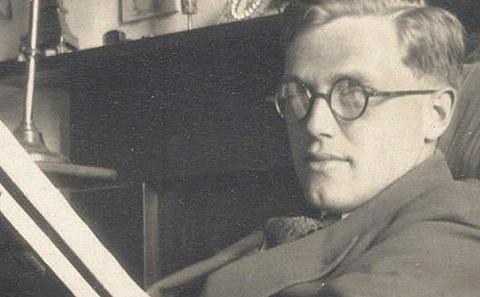Home is where the Heart is: Aliyah, Zionism and British Jews after 1948 Seminar

- Time:
- 18:00
- Date:
- 25 April 2017
- Venue:
- Lecture Theatre C, Avenue Campus, University of Southampton SO17 1BF
For more information regarding this seminar, please email The Parkes Institute at parkes@southampton.ac.uk .
Event details
Part of The Parkes Institute's Research Seminar Series for 2016/2017
British Jewry in Aliyah
Prior to the Second World War and the Holocaust, British Jewry was significantly divided about the desirability of a Jewish state. While some Jews enthusiastically joined Zionist clubs and political movements, other British Jews saw such behavior as undesirable, and often as unpatriotic, especially in the context of British governance of Palestine. For most, Zionism was seen as a movement that would serve to support Jews from other countries, so that even fundraising and support for Zionist activity should not be seen as a personal commitment to moving to Israel, a fact borne out by the low migration figures from Britain to the yishuv.
In the postwar (and post-Holocaust), British Jewry rallied around the reality of the new state of Israel. While most British Jews continued to see Israel as a place for tourism and fundraising more than migration, strong currents of Jewish anti-Zionism faded after the state’s creation. Since independence, Israel has retained the support of the vast majority of British Jews and their representatives. Nearly all British synagogues formally affiliate with Zionist causes, a commitment replicated in Jewish charities, schools, and youth clubs.
Since the birth of the State of Israel, over 32000 British Jews have officially migrated, adding to a community of 1500 who moved before the declaration of the State. These statistics, however, mask a much more complex trajectory of movement. Some British Jews live for extended periods in Israel without formally taking citizenship, while many of those who formally become Israelis (or, in Zionist parlance, make aliyah) end up permanently returning to Britain, or living between the two states. This lecture will argue that the ideology and action that drove British-Jewish aliyah raises important questions, which inform historical understanding of Israeli society and culture, and simultaneously advance scholarly approaches to Jewish/non-Jewish relations and Jewish identities/beliefs in postwar Britain, and potentially Western Europe and North America.
Speaker information
Professor Gavin Schaffer, University of Birmingham. Gavin Schaffer is a social and cultural historian specialising in the history of race and immigration in the twentieth century. In particular, I am interested in the ways in which racial ideas have been formulated and disseminated. I have spent several years researching the place of race in science, research which led to my 2008 monograph, Racial Science and British Society. Subsequently, I have written a monograph about racism and the media, looking in detail at television’s attempts to deal with multiculturalism in the 1960s and 1970s. Alongside my work on race, I am also interested in the history of immigrants and minorities, Jewish history, the history of comedy, and the social history of modern warfare, especially the Second World War.